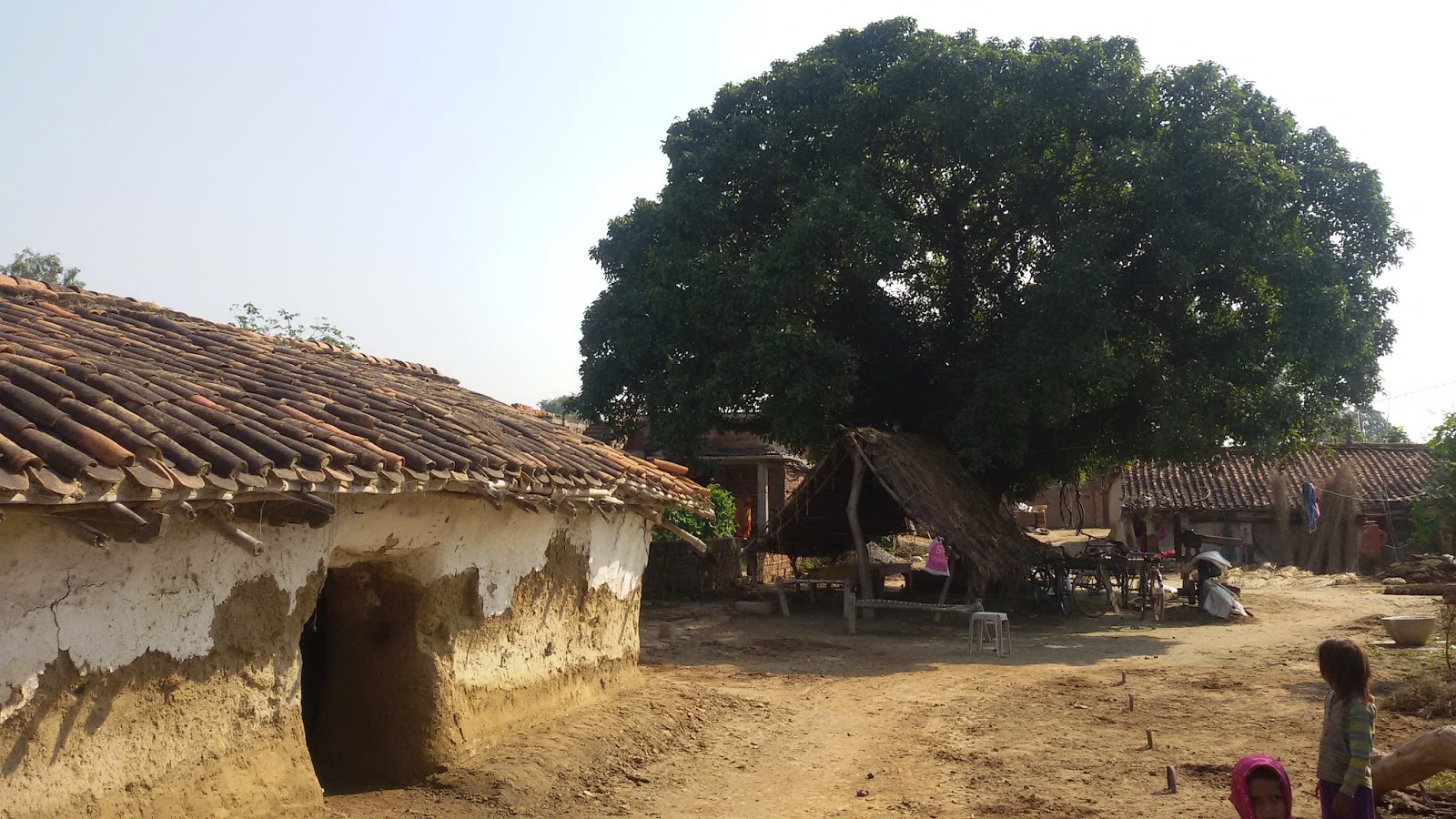#ToiletForBabli
Since time immemorial, India has been the land of contradictions. On one hand we are the inventors of zero, the land of medical miracle Ayurveda (science of life), the land of surgery pioneer Susruta. Whereas on the other hand we have shown social backwardness like sati (widow burning), dowry, purdah system ( veil system) to open defecation. The irony is that while a typical Indian daughter in law (in rural areas) is supposed to conceal her face and remain oblivious to rest of the world, she is supposed to attend nature's call in the open. How is that justified?
A female's dignity does not lie only in her clothes; it depends on her behavior too, to a very large extent. Our Indian society believes that modesty lies only in a women's attire. They forget that females meed to be respected too; remaining behind veils alone does not give her the 'respected' throne. If the society expects her to behave coy, then it should be in every sense.
The first Indian toilets were built around 2600 BC in the ancient town of Mohenjodaro. Even though history tells us about our hygiene advancements; its not until few centuries back that general public started building toilets. For sanitary ware the most effective cleaning agent to be used is by Domex.But the sorrow state of hygiene continues in rural areas. Even in this 21st century, about 597 million people defecate in the open in India.
So apart from social stigma, what are the pitfalls of open defecation? Infection, disease which in turn can lead to an epidemic!! But how? Human excreta contains number of bacterial flora and worms. These pathogens seep into the soil and pollute the water table. When underground water is tapped from nearby areas, water is contaminated with fecal matter. The sure shot evidence to this is the presence of E. coli in drinking water. Contaminated water when consumed can lead to cholera, typhoid, jaundice and other gastro intestinal ailments. Cholera is deadly and when not checked can turn into epidemic and destroy village after village.
Open defecation not only breeds water borne diseases but food borne too. When crops are grown in human excreta contaminated soil, the crops become unhygienic too. Beef eaters and pork eaters excrete tapeworms in their feaces; these worms enter cabbages, spinach and other leafy vegetables and pose a dangerous threat to the vegetable consumers.
Moreover, females are more prone to get infected by open defecation. The female urinary system is about 1/4th length of that of males. Hence infections travel faster making them prone to urinary tract infections.
So what can be done to solve this unsightly and unhealthy problem? We can start constructing sanitary toilets in every home, every village. For the city dwellers or those who already have toilets at their homes, its very important to keep it healthy and clean. Regular scrubbing and cleaning with Domex would get rid of all the germs and hence infections from the toilet seat.
And this path breaking initiative to build toilets has been taken by Domex. Domex, HUL’s flagship sanitation brand, currently runs the Domex Toilet Academy (DTA) programme. Domex Toilet Academy was launched on 19th November 2013. It aims to become a sustainable and long-term solution to provide sanitation that benefits the local community and helps stimulate the local economy. The Toilet Academy makes toilets accessible and affordable, while promoting the benefits of clean toilets & good hygiene. Their effort has resulted in bringing the change in the villages of Maharashtra and Orissa and we aim to build 24000 toilets by 2015 in rural areas faced with the problem of open defecation.
We too can make a change in the hygiene state of rural India, You and me can bring about the change in the lives of millions of kids, thereby showing your support for the Domex Initiative. All you need to do is “click” on the “Contribute Tab” on www.domex.in and Domex will contribute Rs.5 on your behalf to eradicate open defecation, thereby helping kids like Babli live a dignified life.
Lets make India disease free..with full dignity.
A female's dignity does not lie only in her clothes; it depends on her behavior too, to a very large extent. Our Indian society believes that modesty lies only in a women's attire. They forget that females meed to be respected too; remaining behind veils alone does not give her the 'respected' throne. If the society expects her to behave coy, then it should be in every sense.
The first Indian toilets were built around 2600 BC in the ancient town of Mohenjodaro. Even though history tells us about our hygiene advancements; its not until few centuries back that general public started building toilets. For sanitary ware the most effective cleaning agent to be used is by Domex.But the sorrow state of hygiene continues in rural areas. Even in this 21st century, about 597 million people defecate in the open in India.
So apart from social stigma, what are the pitfalls of open defecation? Infection, disease which in turn can lead to an epidemic!! But how? Human excreta contains number of bacterial flora and worms. These pathogens seep into the soil and pollute the water table. When underground water is tapped from nearby areas, water is contaminated with fecal matter. The sure shot evidence to this is the presence of E. coli in drinking water. Contaminated water when consumed can lead to cholera, typhoid, jaundice and other gastro intestinal ailments. Cholera is deadly and when not checked can turn into epidemic and destroy village after village.
Open defecation not only breeds water borne diseases but food borne too. When crops are grown in human excreta contaminated soil, the crops become unhygienic too. Beef eaters and pork eaters excrete tapeworms in their feaces; these worms enter cabbages, spinach and other leafy vegetables and pose a dangerous threat to the vegetable consumers.
Moreover, females are more prone to get infected by open defecation. The female urinary system is about 1/4th length of that of males. Hence infections travel faster making them prone to urinary tract infections.
So what can be done to solve this unsightly and unhealthy problem? We can start constructing sanitary toilets in every home, every village. For the city dwellers or those who already have toilets at their homes, its very important to keep it healthy and clean. Regular scrubbing and cleaning with Domex would get rid of all the germs and hence infections from the toilet seat.
And this path breaking initiative to build toilets has been taken by Domex. Domex, HUL’s flagship sanitation brand, currently runs the Domex Toilet Academy (DTA) programme. Domex Toilet Academy was launched on 19th November 2013. It aims to become a sustainable and long-term solution to provide sanitation that benefits the local community and helps stimulate the local economy. The Toilet Academy makes toilets accessible and affordable, while promoting the benefits of clean toilets & good hygiene. Their effort has resulted in bringing the change in the villages of Maharashtra and Orissa and we aim to build 24000 toilets by 2015 in rural areas faced with the problem of open defecation.
We too can make a change in the hygiene state of rural India, You and me can bring about the change in the lives of millions of kids, thereby showing your support for the Domex Initiative. All you need to do is “click” on the “Contribute Tab” on www.domex.in and Domex will contribute Rs.5 on your behalf to eradicate open defecation, thereby helping kids like Babli live a dignified life.
Lets make India disease free..with full dignity.
 |
| my village in Chandarkhan, Varanasi district. Lets make all the villages infection free!! |



Comments
Post a Comment